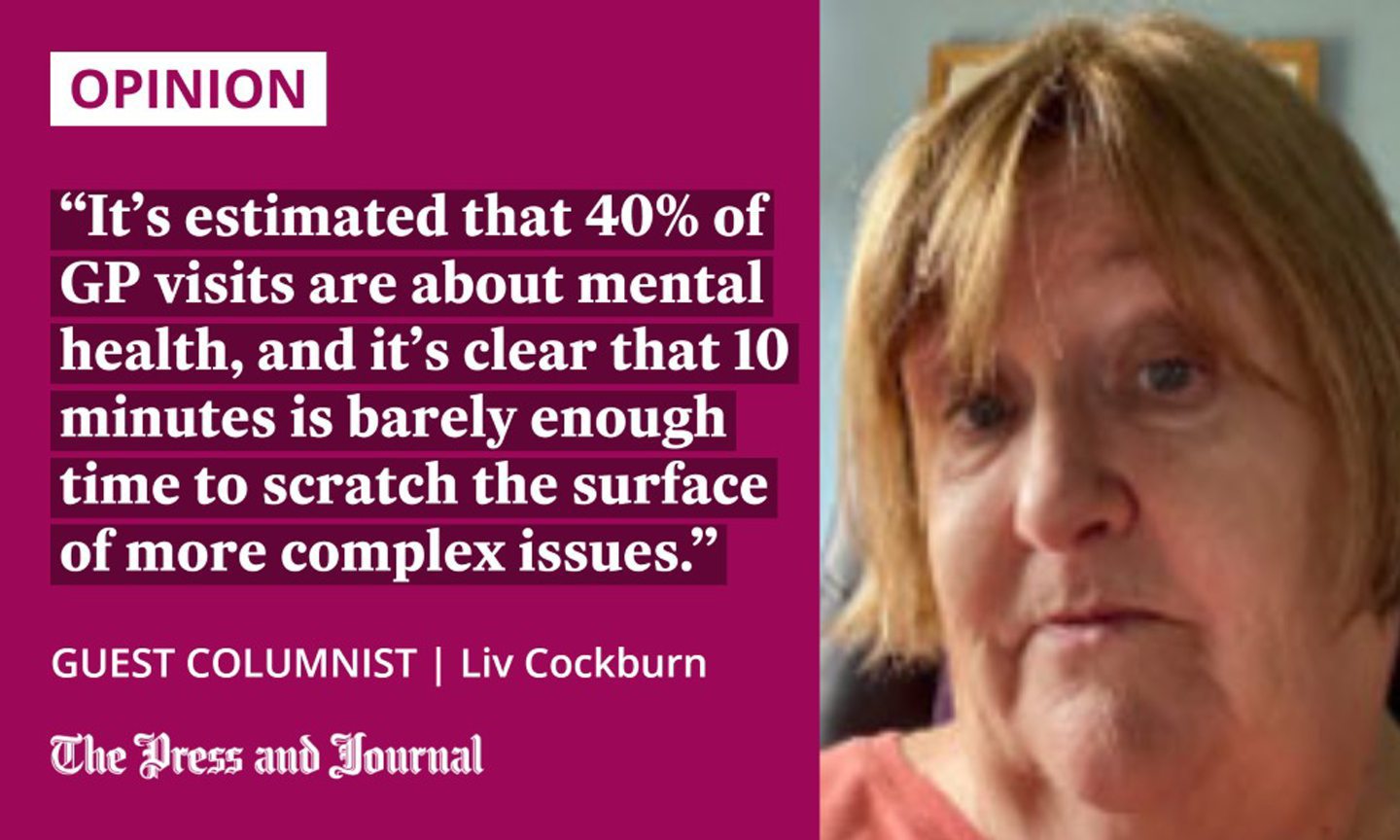From colds and viruses to skin complaints and breathing difficulties, GPs deal with a wide range of complaints on a daily basis – and each within an allotted time slot.
However, it’s estimated that 40% of GP visits are about mental health, and it’s clear that 10 minutes is barely enough time to scratch the surface of more complex issues.
The Aberdeen Links Service – managed and delivered by SAMH, working closely with Aberdeen City Health and Social Care Partnership – supports people to resolve the issues they may be having that are affecting their mental health and physical wellbeing.

Aberdeen is one of the only places in Scotland that has a link practitioner in every GP practice, and it’s clear it’s needed – in the first three months of this year, we have received almost 400 new referrals.
The term “person-centred” is perhaps overused in the sector, but I do genuinely believe that the Links Service does this for every person we work with. We have the ability and time to have meaningful conversations with an individual, using sensitive and effective communication.
Link practitioners are able to provide information and support to help people identify and manage issues and barriers. Our non-clinical support enables them to set their own personal goals and improve their health, wellbeing and personal resilience.
A lot of the people we work with have been stuck in a revolving door of referrals to services that don’t work for them, so it’s all about finding out what they want to achieve and linking them in to the right opportunities.
Giving support to empower people
People are referred for a variety of reasons: housing, employment, finance or loneliness are a few. We discuss priorities and how we can help.
For example, if someone is struggling to navigate the benefits system, we can help them identify what they’re entitled to, support them with the application, or refer them on to more specialist services.
At the moment, we’re supporting those who are reluctant to go out due to the pandemic. We help them to set small, achievable goals
If someone is feeling isolated, we can help them to access local community groups, from tea parties to befriending services, and even accompany them initially, as people often struggle to take the first step alone.
✅ Want a chat to someone about #mentalhealth?
✅ Seeking support?
✅ Looking for info on different conditions and treatments?We can help.
Use the SAMH Information Service:
☎️ 0344 800 0550
📧 info@samh.org.uk
💻 https://t.co/i5fOaIBA90 pic.twitter.com/p4eTNQ3uts— SAMH (@SAMHtweets) June 27, 2022
At the moment, we’re supporting those who are reluctant to go out due to the pandemic. We help them to set small, achievable goals in order for them to begin to start living a “normal” life.
At its core, Aberdeen’s Links Service is about empowering people, so I’ll finish with a quote from a service user: “Can’t thank you enough, we love our new house and my PIP has also come through. My mental health is so much better and my mobility has also improved.”
Liv Cockburn is a senior primary care link practitioner for the Scottish Association for Mental Health (SAMH)


Conversation